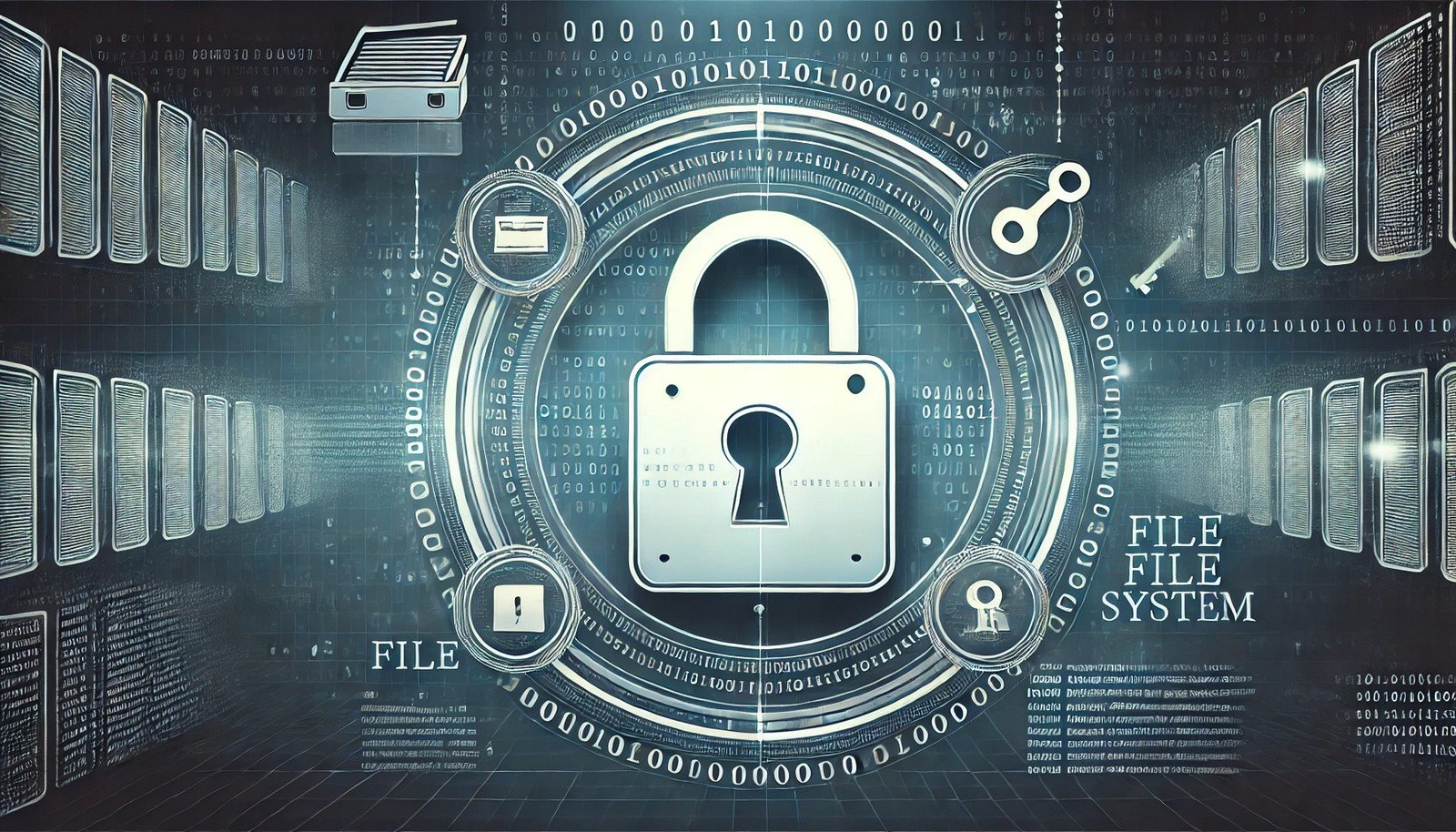Encrypted File Systems
 (Representational Image | Source: Dall-E)
(Representational Image | Source: Dall-E)
Quick Navigation:
- Encrypted File Systems Definition
- Encrypted File Systems Explained Easy
- Encrypted File Systems Origin
- Encrypted File Systems Etymology
- Encrypted File Systems Usage Trends
- Encrypted File Systems Usage
- Encrypted File Systems Examples in Context
- Encrypted File Systems FAQ
- Encrypted File Systems Related Words
Encrypted File Systems Definition
An Encrypted File System (EFS) is a technology that enables files and directories to be stored in an encrypted format, ensuring that unauthorized users cannot access their contents. EFS operates by encrypting data at the file system level, making it a secure method for protecting sensitive information. Common implementations include Microsoft's Encrypting File System (EFS) on Windows and Linux's eCryptfs. These systems use cryptographic keys to control access, ensuring that only authorized users can decrypt and read the data.
Encrypted File Systems Explained Easy
Imagine you have a diary, and you don’t want anyone else to read it. So, you create a special code that only you understand. Every time you write something, you use the code, and only you can decode it later. An Encrypted File System works in the same way, but for computer files. It locks files using a secret key, and only the right person can unlock and read them.
Encrypted File Systems Origin
The concept of encrypted file systems originated in the late 1970s and 1980s when cryptographic techniques were first applied to secure digital storage. Early implementations were primarily developed for military and government use, where protecting classified data was essential. As personal computing and networking expanded, encrypted file systems became more accessible for businesses and individuals.
Encrypted File Systems Etymology
The term "Encrypted File System" combines:
- "Encrypt", from the Greek word kryptós (hidden) + en- (into).
- "File System", referring to how an operating system organizes and manages data storage.
Encrypted File Systems Usage Trends
With the rise in cyber threats and data breaches, the adoption of encrypted file systems has increased significantly. Enterprises, governments, and individuals use encryption to secure sensitive information such as financial records, legal documents, and personal communications. Modern cloud storage providers also incorporate encryption to ensure data protection.
Encrypted File Systems Usage
- Formal/Technical Tagging:
- Data Security
- Cryptography
- File Protection - Typical Collocations:
- "Enable encrypted file system"
- "Encrypt sensitive files"
- "Secure file system encryption"
- "Decrypt encrypted data"
Encrypted File Systems Examples in Context
- A business encrypts employee records using an encrypted file system to prevent unauthorized access.
- Journalists working on sensitive stories use encrypted file systems to protect confidential sources.
- Cloud storage providers offer end-to-end encryption to keep customer data secure.
Encrypted File Systems FAQ
- What is an encrypted file system?
An encrypted file system secures files by converting data into unreadable formats, accessible only with the correct decryption key. - How does an encrypted file system work?
It uses encryption algorithms to encode files so that only authorized users with the right key can decrypt and read them. - What are some examples of encrypted file systems?
Examples include Windows Encrypting File System (EFS), Linux eCryptfs, and Apple’s FileVault. - Is an encrypted file system secure?
Yes, but security depends on factors like key management and encryption strength. - Can encrypted files be recovered if the key is lost?
In most cases, no. Losing the key means losing access to encrypted data. - What encryption methods do encrypted file systems use?
Common methods include AES (Advanced Encryption Standard) and RSA (Rivest-Shamir-Adleman). - Is encrypting files necessary for personal use?
Yes, especially for sensitive files like financial records, passwords, or legal documents. - Does file encryption affect system performance?
It may slightly slow down read/write speeds, but modern hardware minimizes the impact. - How is an encrypted file system different from full disk encryption?
Full disk encryption secures an entire drive, while encrypted file systems protect specific files or folders. - Can encrypted file systems be used in cloud storage?
Yes, many cloud providers offer encrypted storage options to protect user data.
Encrypted File Systems Related Words
- Categories/Topics:
- Cybersecurity
- Digital Privacy
- Data Encryption
Did you know?
In 2016, a hacker group attempted to ransom thousands of encrypted files on users’ computers by tricking them into installing fake encryption software. This attack led to increased awareness about ransomware, highlighting the importance of secure encryption management.
PicDictionary.com is an online dictionary in pictures. If you have questions or suggestions, please reach out to us on WhatsApp or Twitter.Authors | Arjun Vishnu | @ArjunAndVishnu

I am Vishnu. I like AI, Linux, Single Board Computers, and Cloud Computing. I create the web & video content, and I also write for popular websites.
My younger brother, Arjun handles image & video editing. Together, we run a YouTube Channel that's focused on reviewing gadgets and explaining technology.



Comments powered by CComment